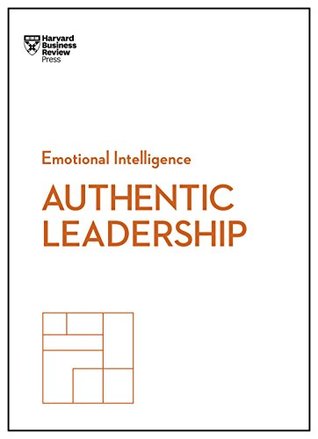Kindle Notes & Highlights
Read between
September 20 - September 29, 2024
People trust you when you are genuine and authentic, not a replica of someone else.
“Leadership has many voices. You need to be who you are, not try to emulate somebody else.”
Authentic leaders demonstrate a passion for their purpose, practice their values consistently, and lead with their hearts as well as their heads. They establish long-term, meaningful relationships and have the self-discipline to get results. They know who they are.
Rather, their leadership emerged from their life stories. Consciously and subconsciously, they were constantly testing themselves through real-world experiences and reframing their life stories to understand who they were at their core. In doing so, they discovered the purpose of their leadership and learned that being authentic made them more effective.
The challenge is to understand ourselves well enough to discover where we can use our leadership gifts to serve others.”
Discovering your authentic leadership requires a commitment to developing yourself. Like musicians and athletes, you must devote yourself to a lifetime of realizing your potential. Most people Kroger CEO David Dillon has seen become good leaders were self-taught. Dillon said, “The advice I give to individuals in our company is not to expect the company to hand you a development plan. You need to take responsibility for developing yourself.”
Authentic leaders act on that awareness by practicing their values and principles, sometimes at substantial risk to themselves. They are careful to balance their motivations so that they are driven by these inner values as much as by a desire for external rewards or recognition. Authentic leaders also keep a strong support team around them, ensuring that they live integrated, grounded lives.
Denial can be the greatest hurdle that leaders face in becoming self-aware.
The values that form the basis for authentic leadership are derived from your beliefs and convictions, but you will not know what your true values are until they are tested under pressure. It is relatively easy to list your values and to live by them when things are going well. When your success, your career, or even your life hangs in the balance, you learn what is most important, what you are prepared to sacrifice, and what trade-offs you are willing to make.
Leading is high-stress work. There is no way to avoid stress when you are responsible for people, organizations, outcomes, and managing the constant uncertainties of the environment. The higher you go, the greater your freedom to control your destiny but also the higher the degree of stress. The question is not whether you can avoid stress but how you can control it to maintain your own sense of equilibrium.
Authentic leaders are constantly aware of the importance of staying grounded. Besides spending time with their families and close friends, authentic leaders get physical exercise, engage in spiritual practices, do community service, and return to the places where they grew up. All are essential to their effectiveness as leaders, enabling them to sustain their authenticity.
As the playwright Wilson Mizner said, copying one author is plagiarism, but copying many is research.
Tough empathy means giving people what they need, not what they want.
Recruits are pushed to be the best that they can be; “grow or go” is the motto.
decisions. “If I have to, I can be ruthless,” he says. “But while they’re with me, I promise my people that they’ll learn.”
At its best, tough empathy balances respect for the individual and for the task at hand.
When you mess up, admit it. And look appropriately sad about it.


